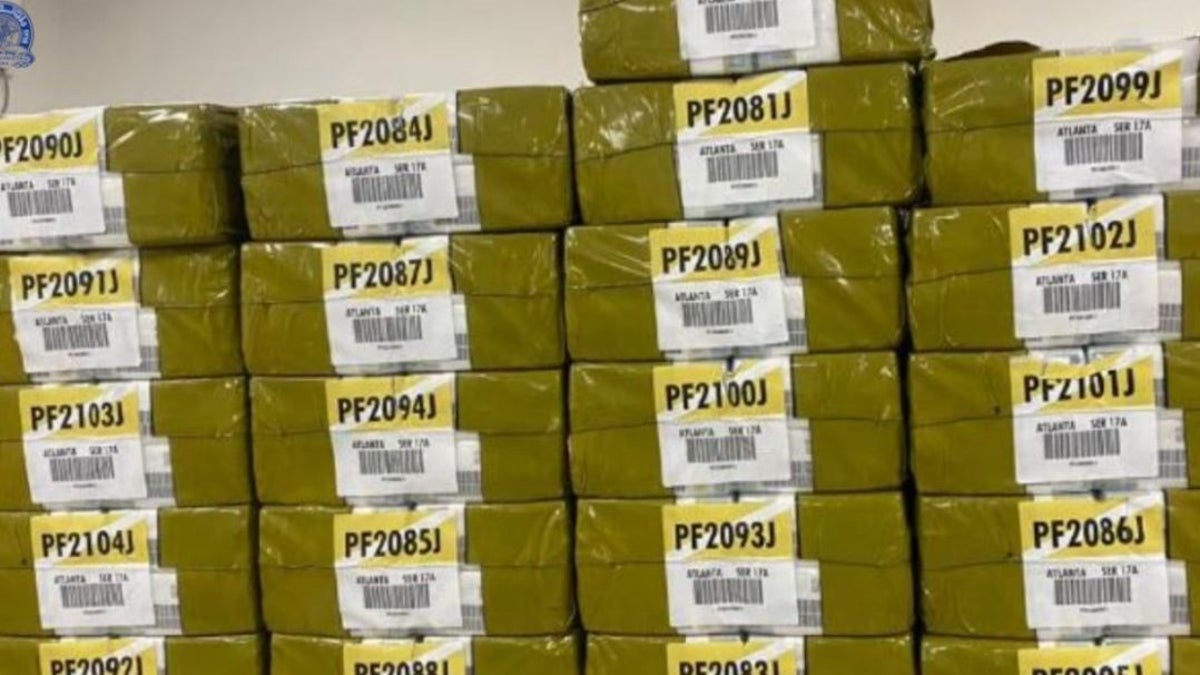40 Million A Week To The Taliban: The Shocking Truth Unveiled
When you hear the phrase "40 million a week to the Taliban," it immediately raises eyebrows and sparks curiosity. What does this mean? Why is such a staggering amount of money involved? This topic has been making waves across global news platforms, and it's time to dive deep into the details. In this article, we'll explore the ins and outs of this controversial subject, shedding light on the hidden truths behind the headlines.
This isn't just about numbers; it's about understanding the geopolitical landscape, the motivations behind these payments, and the implications for global security. If you're looking for answers, you're in the right place. We'll break it down step by step so you can make sense of it all.
As we dig deeper, you'll discover the context surrounding these payments, the players involved, and the potential consequences. This is a complex issue that affects not only the regions directly involved but also the entire world. Let's get started and uncover the truth together.
Read also:Saucony Progrid Triumph 4 A Runners Dream Shoe Unveiled
Understanding the Context: What Does "40 Million a Week" Really Mean?
Let's start by setting the stage. When we talk about "40 million a week to the Taliban," we're referring to a significant financial transaction that has sparked intense debate. This isn't just about money; it's about power, influence, and control. The Taliban, as a group, has been operating in Afghanistan for decades, and their financial backing has always been a topic of interest.
Now, you might be wondering, where does this money come from? Well, that's where things get interesting. Various sources, including governments, private entities, and even individuals, have been linked to these payments. But why would anyone willingly hand over such a large sum to a group with a controversial reputation? The reasons are as complex as the situation itself.
To give you a clearer picture, let's break it down:
- Money can be used as a tool for negotiation.
- It might serve as a way to ensure safety or secure certain interests.
- Some payments could be linked to ransom demands or protection money.
Who Are the Taliban, and Why Are They Getting Paid?
Before we dive deeper into the payments, it's crucial to understand who the Taliban are. The Taliban is an Islamic fundamentalist group that emerged in Afghanistan in the early 1990s. They gained international notoriety after seizing control of Afghanistan in the late 1990s and imposing strict Sharia law. Their influence extends beyond Afghanistan, affecting neighboring regions and global politics.
But why are they receiving such substantial financial support? The reasons vary depending on the source of the funds. Some argue that paying the Taliban is a way to maintain stability in a volatile region, while others see it as a necessary evil to protect innocent lives. Regardless of the motive, the payments have become a point of contention in international relations.
The Taliban's Financial Network: A Closer Look
Understanding the Taliban's financial network is essential to grasping the significance of these payments. Their funding comes from various sources, including:
Read also:Sweet Cats Cafe Flushing A Purrfect Haven For Cat Lovers
- Drug trafficking, particularly opium production.
- Ransom payments from kidnappings.
- Donations from sympathetic individuals and organizations.
- International aid diverted through corrupt channels.
Each of these sources contributes to the Taliban's ability to maintain their operations and exert influence. The "40 million a week" figure represents just a fraction of their overall revenue, highlighting the scale of their financial operations.
The Role of International Players
Now that we've explored the Taliban's financial network, let's shift our focus to the international players involved in these payments. Governments, corporations, and even private citizens have been implicated in this web of financial transactions. But why would they willingly fund a group with such a controversial reputation?
The motivations vary. Some countries may see payments as a way to secure strategic interests in the region. Others might view it as a means to protect their citizens or assets. Regardless of the reason, these payments have significant implications for global security and stability.
Government Involvement: The Politics Behind the Payments
Government involvement in these payments is a sensitive topic. While some governments publicly denounce the Taliban, others may quietly engage in financial transactions to achieve specific goals. This dichotomy highlights the complexity of international relations and the lengths to which some countries are willing to go to protect their interests.
For example, countries with significant investments in Afghanistan may choose to pay the Taliban to ensure the safety of their assets. Others might see it as a way to gain leverage in negotiations or secure the release of hostages. The motivations are diverse, but the results are the same: the Taliban continues to receive substantial financial support.
Impact on Global Security
The payments to the Taliban have far-reaching consequences for global security. By providing financial backing to a group with a history of violence and extremism, these transactions can inadvertently fuel instability and conflict. The implications are not limited to Afghanistan; they extend to neighboring regions and beyond.
One of the primary concerns is the potential for increased terrorist activity. With access to substantial funds, the Taliban can expand their operations, recruit more members, and plan more sophisticated attacks. This poses a significant threat to global security and underscores the need for a coordinated international response.
The Ripple Effect: How Payments Affect Neighboring Regions
While the focus is often on Afghanistan, the impact of these payments extends to neighboring regions. Countries like Pakistan, Iran, and India have all felt the effects of Taliban activities. The financial support they receive allows them to exert influence beyond their borders, creating instability and tension in the surrounding areas.
For instance, Pakistan has long been concerned about the Taliban's activities along its border with Afghanistan. The financial backing they receive enables them to maintain a presence in the region, complicating efforts to stabilize the area. This creates a cycle of violence and instability that affects millions of people.
Humanitarian Concerns and Ethical Dilemmas
Amidst the geopolitical considerations, it's important not to lose sight of the humanitarian concerns and ethical dilemmas surrounding these payments. Funding the Taliban, even indirectly, raises questions about the moral implications of such actions. How can we justify supporting a group that has been responsible for countless human rights violations?
Moreover, the payments can have a detrimental effect on the local population. By empowering the Taliban, we risk exacerbating the suffering of innocent civilians caught in the crossfire. This creates a moral quandary for those involved in the transactions, forcing them to weigh the potential benefits against the human cost.
Addressing the Ethical Implications
Addressing the ethical implications of these payments requires a multifaceted approach. Governments and organizations must carefully consider the long-term consequences of their actions and seek alternative solutions that prioritize human rights and stability. This might involve increased diplomatic efforts, economic sanctions, or other measures designed to undermine the Taliban's financial network.
Ultimately, the goal should be to create a more stable and secure environment for all parties involved. This requires a commitment to transparency, accountability, and ethical decision-making at all levels of government and business.
Potential Solutions and Future Directions
So, what can be done to address the issue of "40 million a week to the Taliban"? The solutions are not simple, but they are necessary. Efforts must be made to disrupt the Taliban's financial network and reduce their ability to exert influence. This can be achieved through a combination of diplomatic, economic, and military measures.
One potential solution is to increase international cooperation and coordination in combating terrorist financing. By sharing intelligence and resources, countries can work together to identify and dismantle the financial networks that support groups like the Taliban. This requires a commitment to transparency and collaboration on a global scale.
Long-Term Strategies for Stability
In addition to short-term measures, long-term strategies are needed to ensure lasting stability in the region. This might involve investing in education and economic development programs to provide alternative opportunities for young people. By addressing the root causes of extremism, we can reduce the appeal of groups like the Taliban and create a more peaceful future.
Ultimately, the goal should be to create a more stable and prosperous Afghanistan that benefits all its citizens. This requires a sustained effort from the international community and a commitment to addressing the underlying issues that have fueled conflict in the region for decades.
Conclusion: Taking Action and Making a Difference
In conclusion, the issue of "40 million a week to the Taliban" is complex and multifaceted. It involves a wide range of players, motivations, and consequences that extend far beyond the borders of Afghanistan. Understanding the context and implications of these payments is crucial for developing effective solutions.
As we move forward, it's important to remain vigilant and proactive in addressing this issue. By working together and committing to transparency, accountability, and ethical decision-making, we can make a difference. So, what can you do? Share this article, start a conversation, and stay informed. Together, we can create a brighter future for all.
Table of Contents
Article Recommendations


